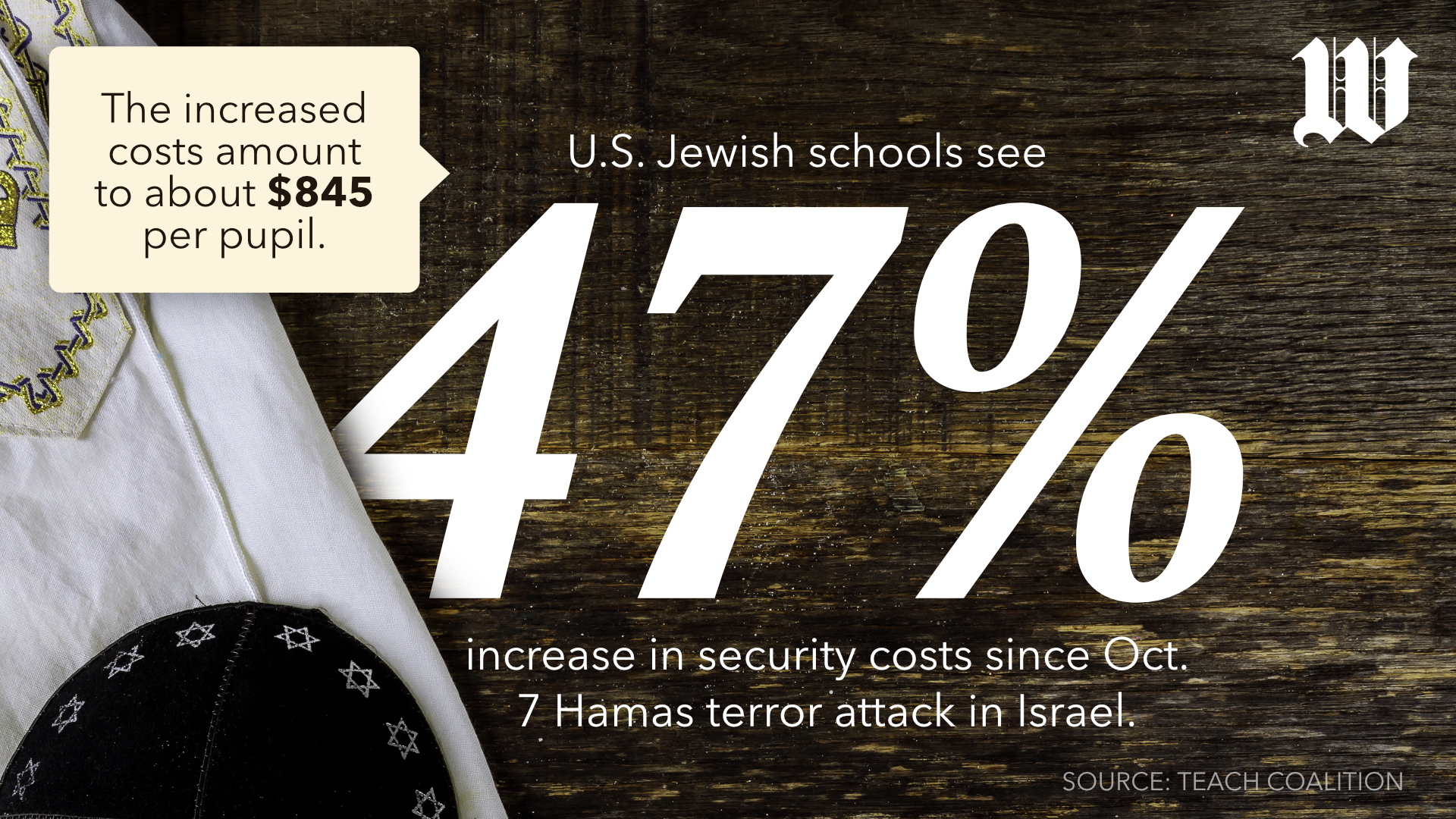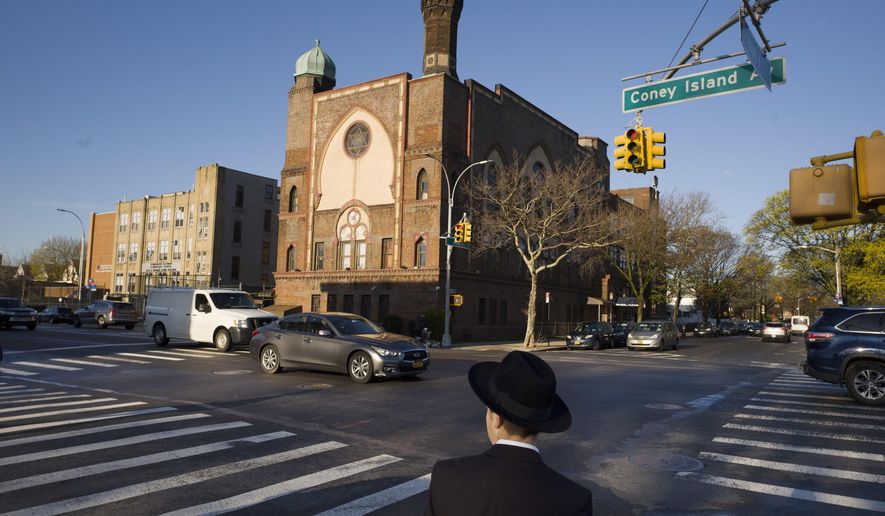Jewish schools in the United States have seen a 47% increase in security costs since the Oct. 7 terrorist raid by Hamas in southern Israel, according to the Teach Coalition, an educational outreach of the Orthodox Union.
The increased costs amount to about $845 per pupil, the coalition estimates. Leaders estimate that at least 50,000 Jewish students attend private, religious-based schools from kindergarten through high school.
Rabbi Binyamin Krauss, principal of the two-campus SAR Academy in the Riverdale neighborhood of New York City’s borough of the Bronx, admits to looking over his shoulder these days.
“We have great relationships with the police department and our elected officials,” Rabbi Krauss said in a telephone interview. “So whenever something happens, we know who to call to be reassured, but the mood is certainly [one of] anxiety.”
The principal said the final security tab for the school year is unknown, but he expects it will be high.
“I can’t tell you now an exact dollar amount that we’ve needed to increase because it’s all happened pretty quickly, but I do know that we are going to exceed our security budget for this year,” Rabbi Krauss said.
The money to pay those security costs “does have to come from somewhere,” he said. “We don’t want it to come from increased cost to parents. It’s expensive to send your kids to school here, [and] 50% of our kids are on scholarship as it is.”

Rabbi Krauss said there are only three financial “buckets” from which the school can pay for security expenses: increased tuition, increased fundraising or government funding. The federal Nonprofit Security Grant Program, or NSGP, is the principal vehicle for such funding, although New York state also offers financial assistance for security at houses of worship and related facilities.
Fundraising is somewhat constrained as American Jews face calls to support those in Israel living under the aftermath of Oct. 7, the rabbi said. Meanwhile, security costs at U.S. Jewish schools have escalated.
The SAR Academy has added security guards on some student trips, an added layer of security with an incurring expense that wasn’t implemented before Oct. 7, Rabbi Kraus said. Off-duty New York City police officers, in uniform, help patrol the campus, with the school picking up that cost.
The rabbi said he hoped there would not be a need to cut educational programs or cultural activities at the school “because we plan on one of those three [financial] buckets opening up first.”
Those avenues for funding might need to open soon and for Jewish schools across the country, said Brad Orsini, senior national adviser with Secure Community Network, the Jewish community’s official safety and security organization.
“Since Oct. 7, our organizations, including schools, synagogues, community centers, assisted living facilities, and our communal assets, nonprofit organizations have seen an increase in threats and incidents across the United States. The numbers bore that out,” Mr. Orsini said.
The numbers are staggering: For 2023, the network logged 5,404 incident reports, 112% more than the 2,551 reported in 2022. Nearly a quarter of the 2023 incidents — 1,222 — took place in December, the largest number of such reports the group has recorded in a single month.
“It’s troubling for the community,” Mr. Orsini said of the spike in incidents. “We feel the anxiety from the community every single day in what we do, and it’s only been amplified since October 7.”
Natalie Jonas and her husband, who live in Paramus, New Jersey, are raising five children who are attending two different Jewish day schools and one high school. She said the period after Oct. 7 has been “very unsettling” as she sends her children to school each morning.
“There definitely was a sense of lack of safety,” Ms. Jonas said. “Not that I didn’t think the schools would keep my kids safe, but there was a general lack of safety for Jewish people, I think.”
Immediately after the Oct. 7 attacks, she said, security was increased at one of the day schools and parents were aware of pro-Palestinian drivers passing the schools with “big Palestinian flags” in their cars. She said she had contacted police “because someone was driving very dangerously all around the school driveway.”
Ms. Jonas, an early childhood education graduate student, said some fears have subsided because there’s only so much the nervous system can handle. Anxiety remains, however.
“I don’t completely trust everybody around me,” she said. “I want to know that there are people that are specifically assigned to be ensuring my children’s safety and the safety of people who go to synagogue and the safety of people getting together. I feel a little safer just because there’s distance from the trauma, but not because anything has necessarily changed in the world to ensure that I should feel safer.”
• Mark A. Kellner can be reached at mkellner@washingtontimes.com.




Please read our comment policy before commenting.